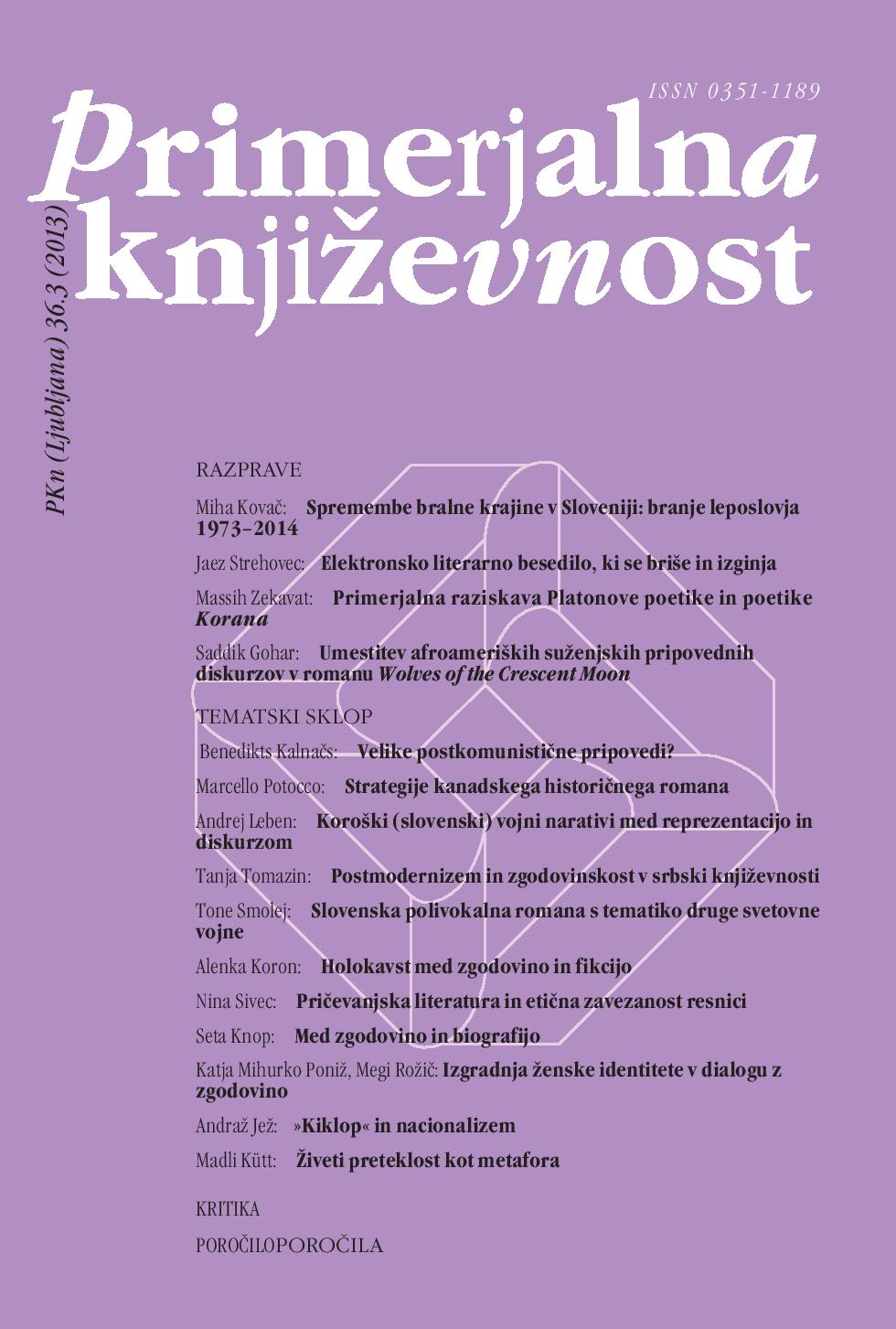Grand Postcommunist Narratives? A Postcolonial Perspective on Latvian Historical Fiction
Keywords:
literature and history, Latvian literature, literary genres, historical novel, time and space, postcommunism, nation building, Zebris, Osvalds, Bankovskis, Pauls, Bērziņš, MārisAbstract
The article provides an insight into contemporary Latvian historical fiction. It focuses on a new series of historical novels, which aims at the interpretation of crucial transformations in the life of society during the 20th century. The first three novels in the series are discussed through a synchronic as well as a diachronic perspective. The introductory part of the article deals with recent general transformations in the literary scene in Latvia and with changes in the interpretation of history during the period of postcommunist transition in particular. A retrospective of the history of Latvian literature helps to explain the relevance of historical topics in the process of nation building. The novels under discussion are interpreted from the point of view of their literary genre and their use of time and space as constitutive factors in the creation of a literary text.References
Bankovskis, Pauls. 18. Riga: Dienas Grāmata, 2014.
Bērziņš, Māris. Svina garša. Riga: Dienas Grāmata, 2015.
Blaumanis, Rūdolfs. “Nāves ēnā”. Kopoti raksti. 3. sēj. Riga: Latvijas Valsts izdevniecība, 1958. 9–30.
Cornis-Pope, Marcel, and Neubauer, John. “General Introduction”. History of Literary Cultures of East-Central Europe. Eds. Marcel Cornis-Pope and John Neubauer. Vol. IV. Amsterdam and Philadelphia: John Benjamins Publishing Company, 2010. 1–9.
Hasselblat, Cornelius. “The Postcolonial Trap – Features of Recent Estonian Discourse Patterns”. The End of Autonomy? Studies in Estonian Culture. Ed. Cornelius Hasselblatt. Maastricht: Shaker, 2008. 104–110.
Kvietkauskas, Mindaugas. “The Paradox of the Double Post”. Transitions of Lithuanian Postmodernism: Lithuanian Literature in the Post-Soviet Period. Ed. Mindaugas Kvietkauskas. Amsterdam and New York: Rodopi, 2011. 1–18.
Laanes, Eneken. “Commitment and Complicity: Jaan Kross’ Historical Fiction”. Different Inputs – Same Output? Autonomy and Dependence of the Arts Under Different Social-Economic Conditions: The Estonian Example. Ed. Cornelius Hasselblatt. Maastricht: Shaker, 2006. 62–71.
Moretti, Franco. Atlas of the European Novel 1800–1900. London and New York: Verso, 1998.
Neubauer John. “Introduction”. [The historical novel.] History of Literary Cultures of East-Central Europe. Eds. Marcel Cornis-Pope and John Neubauer. Vol. III. Amsterdam and Philadelphia: John Benjamins Publishing Company, 2007. 463–467.
Niedra, Andrievs. Līduma dūmos. Riga: Zinātne, 1992.
Undusk, Jaan. “History Writing in Exile and in the Homeland after World War II. Some Comparative Aspects”. Different Inputs – Same Output? Autonomy and Dependence of the Arts Under Different Social-Economic Conditions: The Estonian Example. Ed. Cornelius Hasselblatt. Maastricht: Shaker, 2006. 127–144.
Zebris, Osvalds. Gaiļu kalna ēnā. Riga: Dienas Grāmata, 2014.
Wolff, Larry. “Revising Eastern Europe: Memory and the Nation in Recent Historiography”. The Journal of Modern History 78.1 (2006). 93–118.


